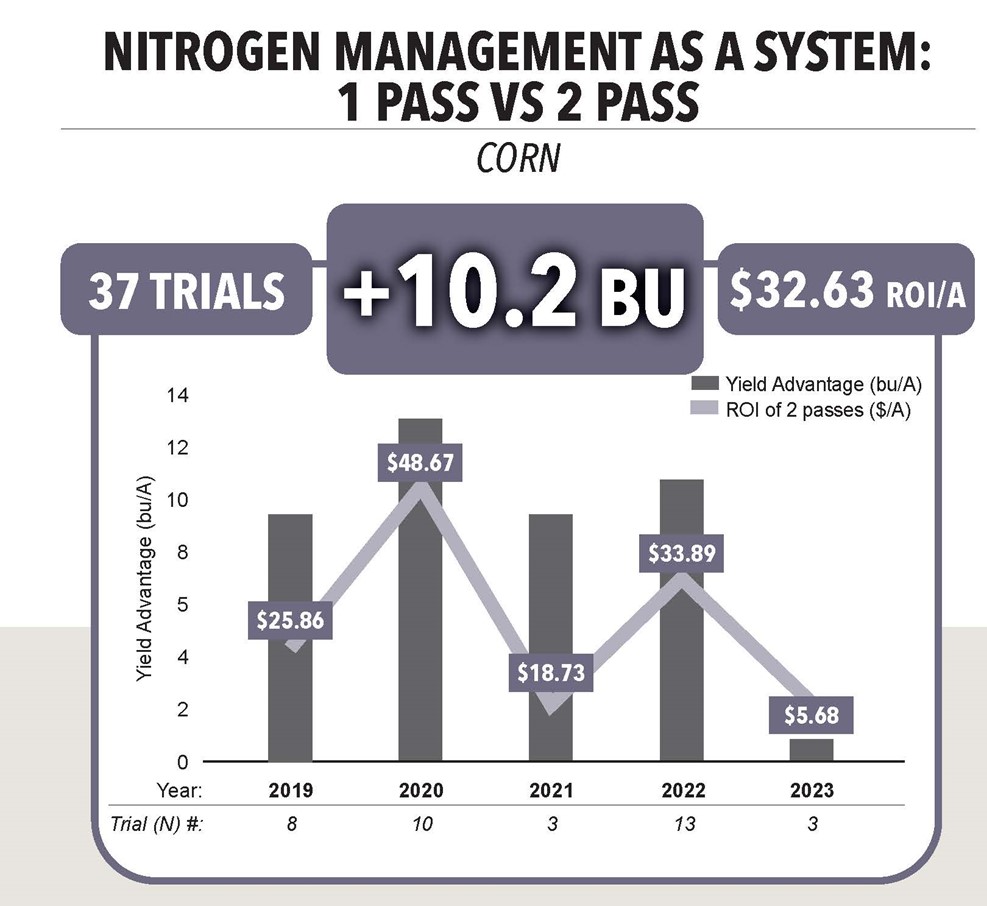- Nitrification and urease inhibitors protect applied nitrogen from loss in the field.
- Split applications of nitrogen increase the available time for crop uptake.
- Biological nitrogen products add small amounts of nitrogen in the growing season.
The Importance of Nitrogen for Crop Growth
Nitrogen is an essential nutrient for crop growth. Applications of nitrogen fertilizer can substantially increase yield which allows more food to be grown from less acres. However, when more fertilizer is applied than can be used by the crop, nitrogen can be lost to the environment via denitrification, leaching and volatilization.
How Can We Protect Applied Nitrogen?
Nitrogen stabilizers are critical for protecting the financial investment we have made in fertilizer. Most synthetic fertilizers contain nitrogen as ammonium (NH4+) or a form of nitrogen that will be converted to ammonium. This is ideal because ammonium is easy for the crop to uptake, however, bacteria in the soil rapidly covert ammonium to nitrate (NO3-) which is also available for plant uptake but can easily be lost to leaching or denitrification. Nitrification inhibitors keep the applied nitrogen fertilizer in the ammonium form longer, preventing nitrogen from being lost to the environment and ensuring it is available for crop uptake. Nitrogen fertilizer that contains urea can also be lost to the environment via volatilization. Regardless of whether the urea is incorporated, urease inhibitors are needed to keep the nitrogen in the soil and available for crops. Split applications of nitrogen are another crucial management step that prevent nitrogen loss and increases its availability for crop growth. By splitting nitrogen fertilizer into multiple applications, we can limit the amount time the nitrogen is in the field and can be lost via denitrification, leaching and volatilization and deliver the fertilizer closer to the time when the crop will use it. Based on 37 MiField trials from the past 5 years - split applications of nitrogen gain on average 10.2 bu/acre compared to single pass nitrogen programs.

Biological Nitrogen
New products, such as Envita™ are emerging to help growers managing nitrogen by adding a biological source of nitrogen. These products include the application of living bacteria to the crop that can fix atmospheric nitrogen and provide a small amount of nitrogen to the crop throughout the growing season. Envita™ has been tested on corn in 117 MiField trials and on average has show a 4.9 bu/A gain and a $16 ROI/A. . In Ontario the response to Envita has been inconsistent. We encourage field trials to determine how effective it might be on yiour farm.